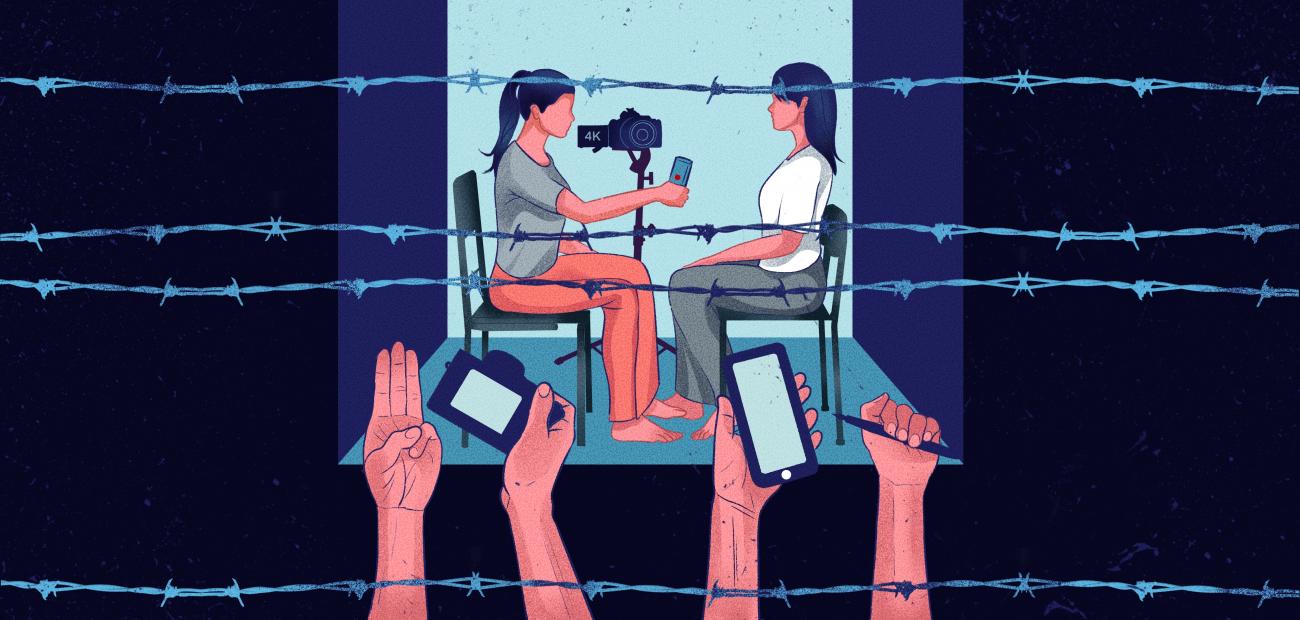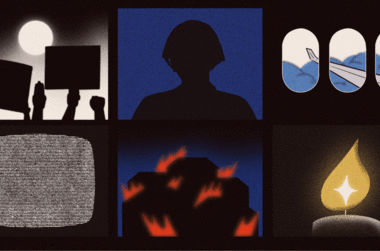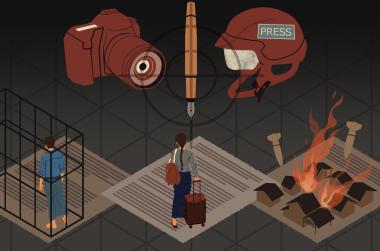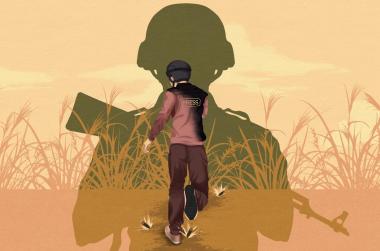The writer is a journalist in Yangon Region who is receiving support from The Kite Tales to write these diaries.
I became a journalist in 2017 in an era of openness and democracy. I believed the dark days of military rule were behind us. They were stories in the history books. I was convinced that such things would never happen again in the 21st century, that our generation would see a fresh start for the country.
We did not even take it seriously when at a press conference the military representative said they could not rule out a coup d’etat. We joked about it. People said if they wanted to take power, they should take out the garbage instead (Note - it is a play on words in Burmese, where “သိမ်း (thein)” can be used for both instances).
Around that time, I distinctly remember reading the book, “Outrage”, about the 1988 uprising in Myanmar. I remember trying to visualise the events of three decades before as I read.
Then on February 1, 2021 the military seized power. And ever since we have experienced first hand the darkness we read about in history books.
Because I was a journalist, I started living in a state of constant alarm. I know other reporters are going through the same thing. Even if you lost your job or quit the profession after the coup and are now trying to make a living some other way, this feeling of insecurity remains. It is something that comes up every time I talk to my friends.
If you stayed working you had to do it in secret, as if it was something illegal. Later, some journalists from news outlets recognised by the military were given limited permission to continue working, but only as long as they do not write about the junta's human rights abuses.
Most journalists who want to report the truth have had to flee to liberated areas (often under the control of the country’s ethnic armed groups or resistance forces) or go abroad and continue working. If you choose to continue working as a journalist within the country (especially if you live in a city), there is no guarantee on your life. This is a situation that will continue until the military council loses power.
I belong to the last category. If you ask me why I continue to work as a journalist in Myanmar, I have no definite answer. At the beginning of the coup, I was working as a freelance journalist. Later, I joined a local news outlet. To be honest, I didn't think it was too dangerous for me at the time. I have not worked as a staff journalist for a long time, so I thought it would be safe to return to work as long as I can keep it a secret. But I came to realise that danger can come in many forms, at any time.
I recall one particular night in Yangon. This was a particularly tense period where police would go house to house to make sure only the people registered at each address were at home – unauthorised guests face fines or arrest and the checks an excuse to search homes and harass occupants. A former journalist I know was arrested during one of these checks because they knew she had worked as a reporter in the past. She was released only because she was very good at providing explanations. But, others are still detained. The military is using a fine-tooth comb. They will arrest anyone they find who is a journalist, or once worked as a journalist.
I heard during the evening that there would be a check at my building. I remember it so clearly. I was frantic, unsure of what to do. Before the coup, I was a broadcast reporter, so I have a camera, tripod, and equipment such as recorders at the house. Some of the equipment was my own and other items were provided by the company. I knew they would not simply go through the guest list, but often take time searching for choice items and arrest people they deem suspicious. I was terrified.
I dismantled the equipment and went around hiding each camera part in a safe place in the house. I also transferred work-related data to a hard drive and hid that, then deleted as much information as possible from my computer. That night, I was so scared I couldn’t sleep. I kept thinking in my head what I would say, how I would explain myself if I got caught.
I could only breathe a sigh of relief when by morning there had been no knock at the door. After that incident, I had a new task - to move and hide my journalism equipment. I decided not to keep anything at home and moved it all to a house that is considered safe. I only keep data on my computer related to the news I am currently working on. I have also learned more about digital security and how to store data. Now when I do an interview in my house, I shut the door or use a quiet room for fear of being heard by the neighbours. In a situation where no one can be trusted, I decided it is better if no one knows what I’m doing. Other reporters have done the same thing.
A journalist friend was arrested while covering a protest. She was released because they did not know she was a reporter, and since then she has suffered a lot of trauma and insecurity. She told me she had to stop working because she was afraid of being arrested again and that she had to move her camera equipment to another location. Now, if I have an assignment, I have to go to the place where my equipment is hidden and pick it up first. There are many more steps now.
All reporters are suffering from trauma in one way or another during this period. We share our feelings among ourselves, but there is no comfort for us.
The future is uncertain. When will they find out you’re a journalist? When will you be arrested? What will happen to your home and your family if you are? You cannot trust anyone completely anymore. There are always suspicions.
But I continue to work as a journalist because it allows me to stand on the side of truth and Dhamma during this revolution. It allows me to expose the atrocities the military commits against the people. At the very least, I have the privilege of being able to listen to those who are experiencing these injustices. Because I always speak to people who are affected more than I am, I tell myself I have to keep going, that my struggles are not that difficult to bear.
Don't we all have to stay strong? Once this is over, I would like to look back on these events and find a way to laugh about them.
Artwork by Songbird who is receiving support from The Kite Tales to produce illustrations.





